Depicting the Hell of War with Unflinching Realism: D'Pharaoh Woon-A-Tai, Will Poulter, Alex Garland and Ray Mendoza Talk 'Warfare'
Based on the memories of one of its co-directors and his unit, this film is designed to feel as relentless and immersive — and horrific — as being in combat.
When he penned The Beach, the 90s-era must-read novel that became a Leonardo DiCaprio (Killers of the Flower Moon)-led movie and started his own working relationship with filmmaker Danny Boyle (Yesterday), Alex Garland told a tale of shattering the Thai holiday idyll. As his backpacker protagonist travelled to Asia, pure shores gleamed, but the supposedly utopian community on a hidden coastline that he sought, and found, was never destined to fulfil the promise of beyond-the-postcard perfection. Garland soon moved to screenwriting, kicking off the 28 Days Later franchise with Boyle and reteaming with the director on the also Cillian Murphy (Small Things Like These)-starring sci-fi gem Sunshine. Grim realities lurk in both, after an escaped virus sparks a zombie pandemic that shatters life as everyone knows it, and on a space mission to attempt to reignite the dying sun.
Warfare, Garland's sixth project as a director himself, also has that familiar idea in its sights: that grasped-onto perceptions, facades and status quos always crumble or conceal horrors, or both, as driven by human nature. The same concept has proven a part of his other works as a filmmaker, starting with 2014's tech nightmare Ex Machina, then continuing through fellow movies Annihilation, Men and Civil War, plus TV series Devs — and before them, on screenplays for Never Let Me Go and Dredd. It's reasonable to expect Garland and Boyle's upcoming 28 Years Later, as well as its sequel 28 Years Later: The Bone Temple (written by Garland but helmed by The Marvels' Nia DaCosta), to continue the trend. Warfare is that idea put into action, however, by the feature's entire existence and purpose. Co-directed with former Navy SEAL and Iraq War veteran Ray Mendoza, drawing solely upon the latter's memories and those of his platoon during a 2006 mission in Ramadi, unfurling in real time and playing out as almost one entire hellish scene, it is as committed to depicting the nightmare reality of combat, and immersing its cast and audience in it, as is cinematically possible.
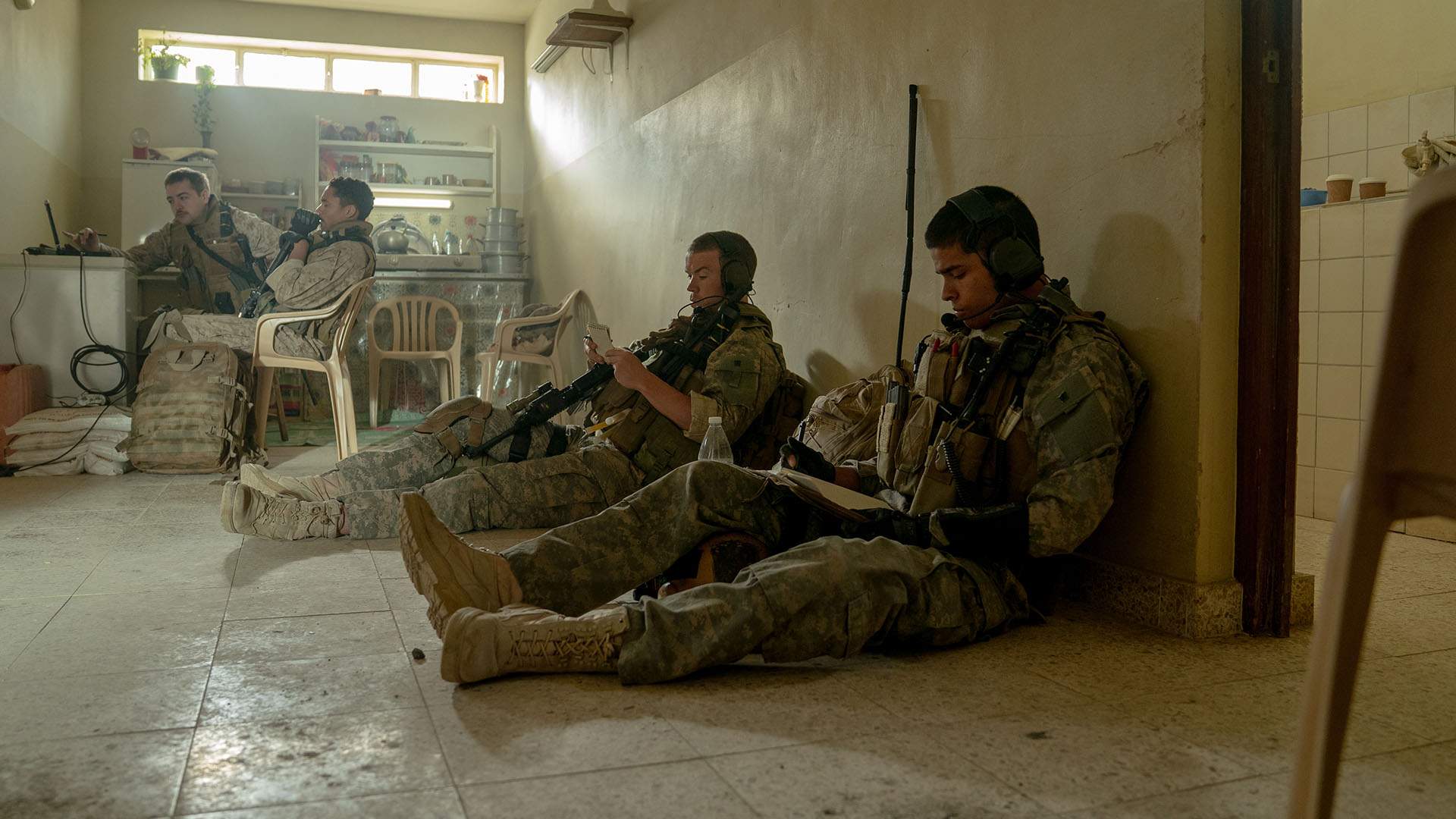
The picture's singular focus and sensory saturation relies upon a valid assumption: no one is watching this in a vacuum, so no one needs the feature to spell out the context, let alone overtly express anything but total realism. The latter conveys everything anyway, and anything more vocally pointed would be beside the point. Warfare is "simply us accumulating memories, accumulating bits of information and trying to piece together what happened", Garland tells Concrete Playground. "The intention is to try to understand what happened in a sequence of events. There is no hero. There is no protagonist, because at different times different people are doing different things, and sometimes they're doing it concurrently."
For D'Pharaoh Woon-A-Tai (Reservation Dogs), who portrays Mendoza as the film follows his unit on a surveillance mission surrounded by insurgents, it's pivotal that "we don't glorify anything, romanticise, make anything up. Almost all the words you hear in there are from actual memory. Everything is basically from memory," he shares.
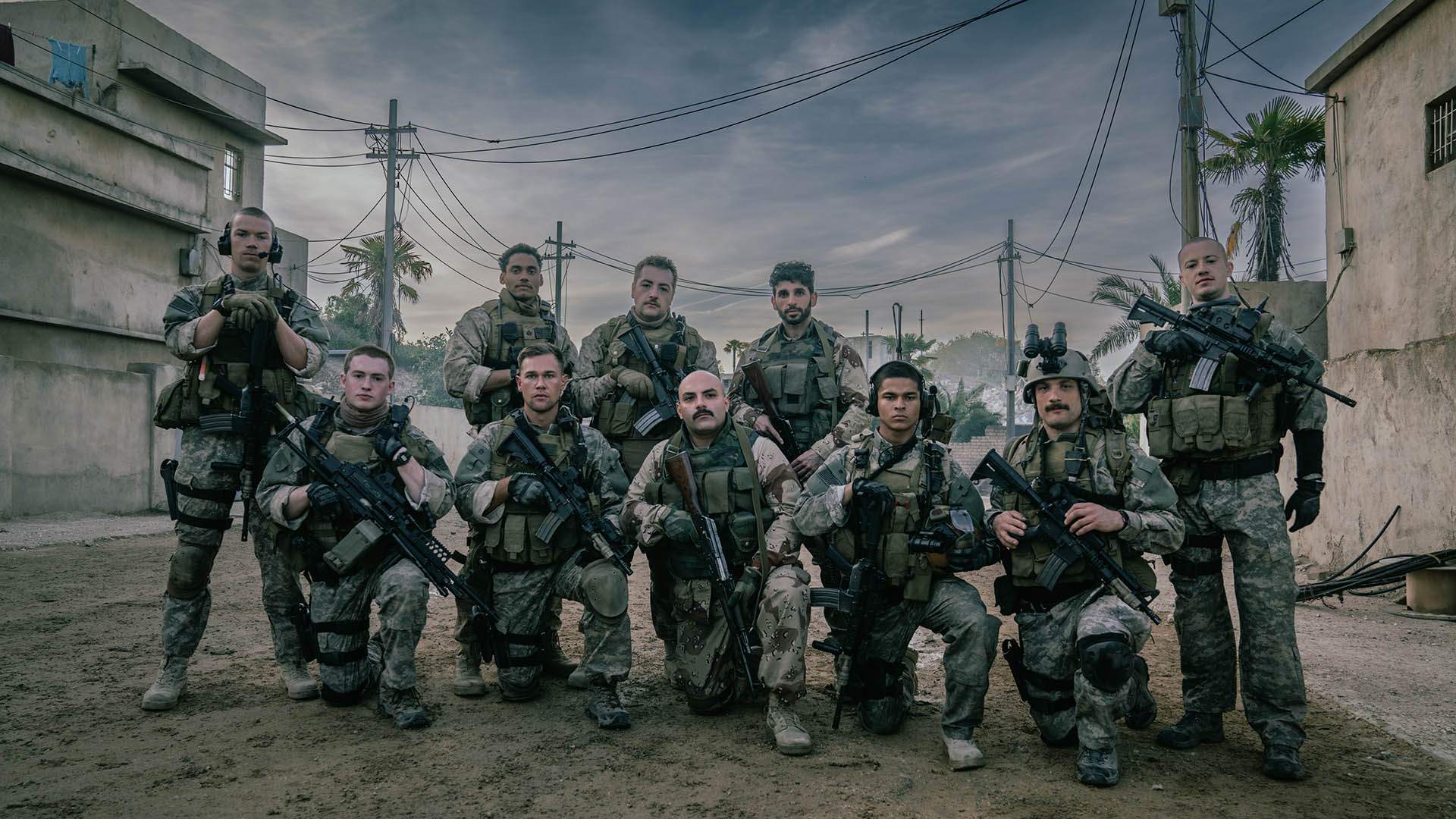
"The audience is an adult. This is not a film for children. It's a film for grownups, right? It's a film for people who live in the fucking world, right? And any adult who does not have an understanding of the Iraq War and why it happened and how it happened is an idiot. It is all available to them to find out. It's a huge global event, and if they have no historical and intellectual curiosity, that is on them. That's not on the film," Garland says, chatting about his second movie in a row, after Civil War, where the justified lack of an all-caps-style, shouting, hand-holding agenda has become a talking point, much to his frustration
"I think that the concept behind that is so lazy, and it comes from a culture that we exist in at the moment where you are not allowed to offer something into the world unless you're making your private agenda clear. And I don't like that. I object to it. Because what it means is all information that is put out into the world is attached to an ideology, which means that either people are being reassured or they're feeling attacked. And some people like to be reassured and some people like to feel angry that they're being attacked, and it's juvenile, it's childish," Garland continues.
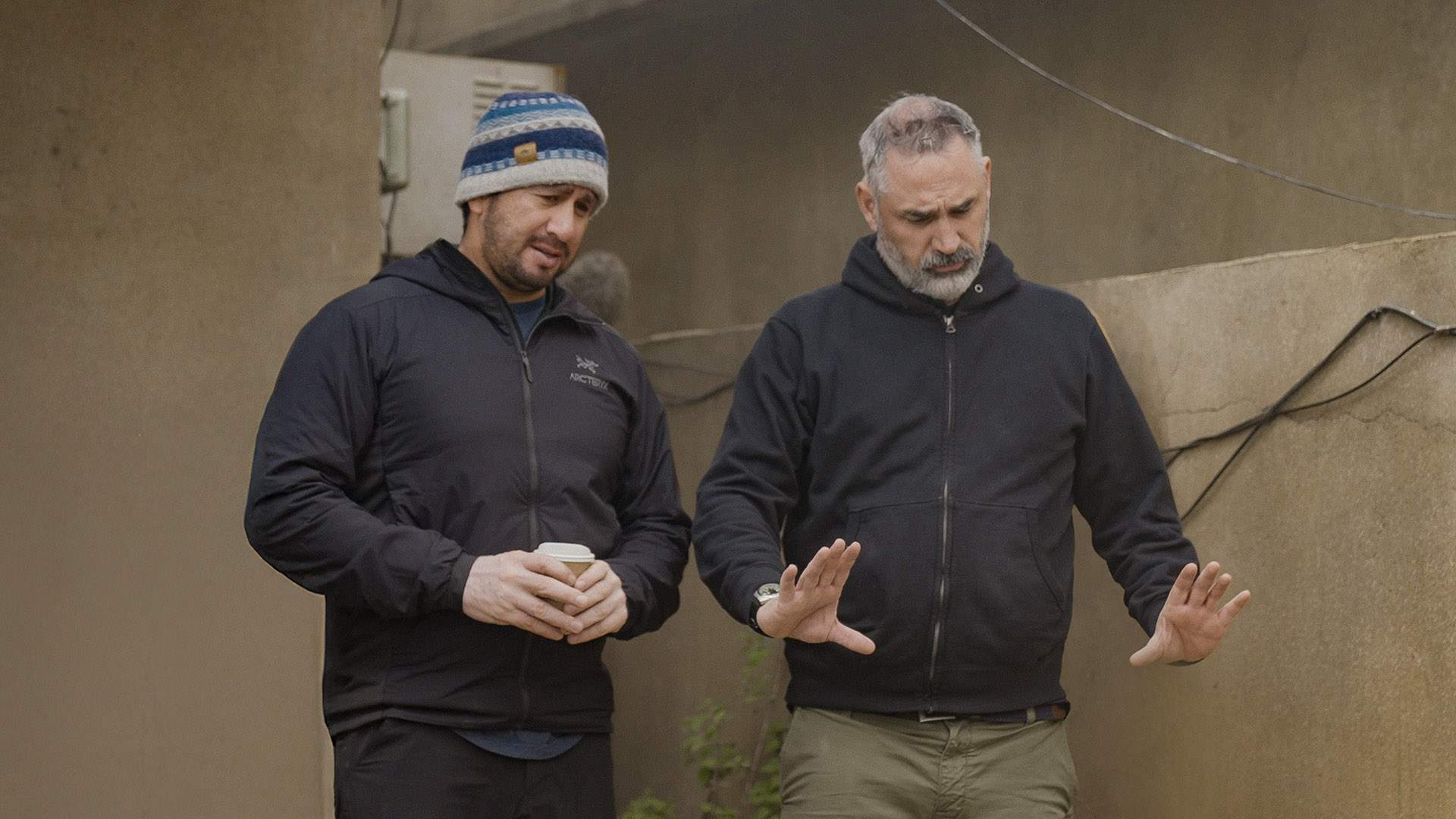
"It's important: if you're going to understand something about how horrific war is, you need to be able to look at it and you need to be able to trust the information. And if we attached an agenda to it, it would make the information untrustworthy, and then we would have failed in our objective. It was the same dreary, whiny bullshit with Civil War as well, and I thought it was lazy, I thought it was unsophisticated and I thought it was dishonest. It was effectively people saying 'why aren't you agreeing with me?' — and that is the same [here]. That is what our polarised state is."
For Warfare's cast, enlisting for the movie was as close to that — enlisting — as a film production can get. Before the cameras began rolling for the impressive lineup of Woon-A-Tai, Will Poulter (Death of a Unicorn), Cosmo Jarvis (The Alto Knights), Joseph Quinn (Gladiator II), Charles Melton (May December), Kit Connor (Heartstopper), Michael Gandolfini (Daredevil: Born Again), Noah Centineo (The Recruit) and more, they went through a Mendoza-led three-week boot camp. During that phase, the group spent every moment together, even when they weren't specifically training. Speaking with us, Woon-A-Tai and Poulter stress how crucial the bond that the actors formed during that experience was, for them and for the picture. Mendoza is equally as adamant. His dedication to authentically recreating what he went through, plus his fellow soldiers like Elliott Miller (who can't remember it due to the traumas of the incident, as viewers witness, and who Jarvis plays), couldn't be more apparent.
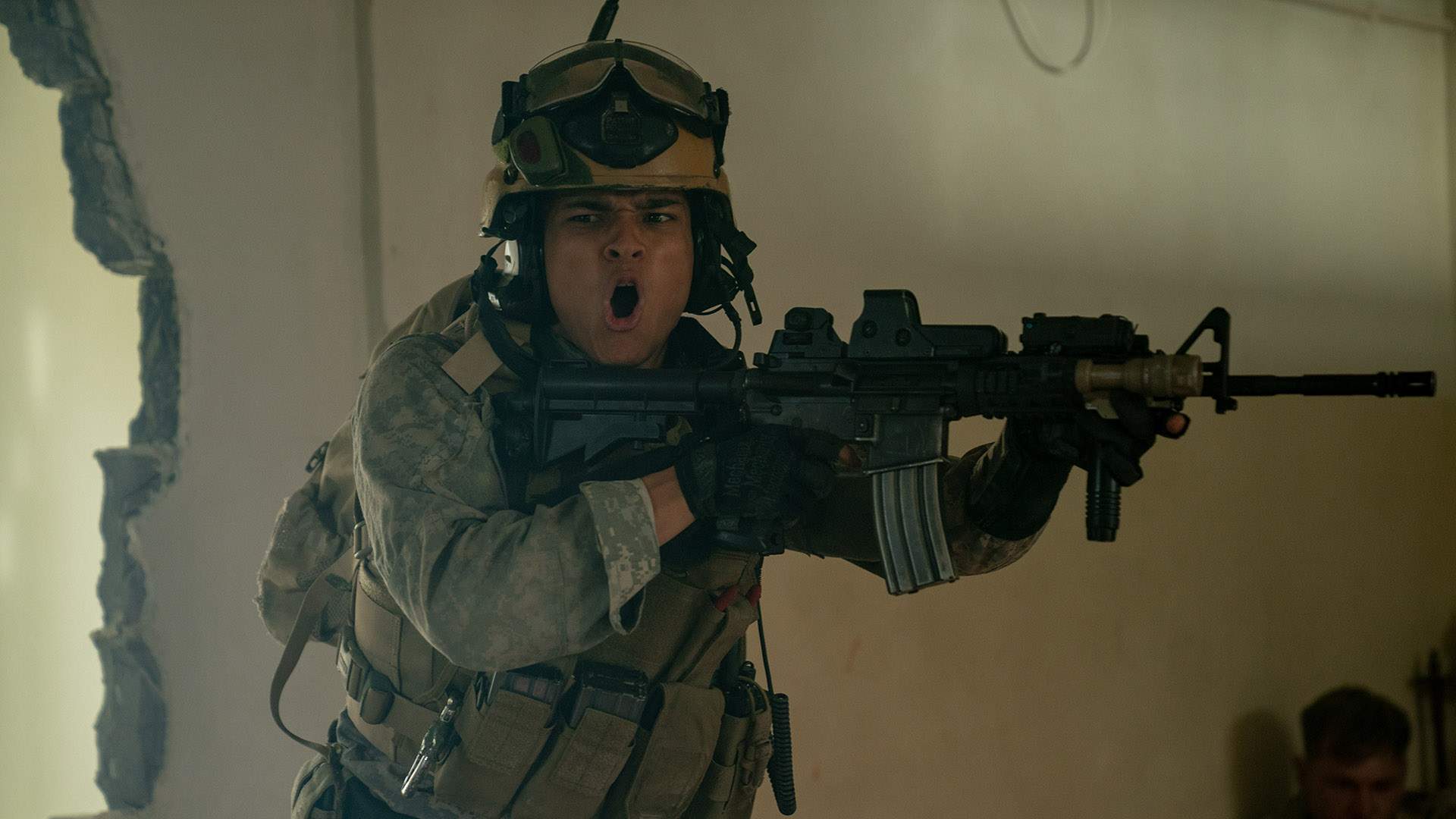
Enforcing the hierarchies of their characters in the film, mirroring leadership positions and communication channels, shaving each other's heads: that was all built into the boot camp. "Quickly, I think it was very unique and very different on this set compared to others," explains Woon-A-Tai. "First and foremost, I haven't played a soldier prior. I haven't been on a set that had a war — a war set — before. So I'm new and I don't understand it. But what was different that I do acknowledge is that the position that Will Poulter here, and Charles Melton and Joseph Quinn, were in," he continues. "They knew our schedule, which is not common. If I wanted to know what we're shooting that day or when's lunch or et cetera, even to ask to use the restroom, I would go to Will. And that was set up perfectly by Ray and by Alex, and also these gentlemen right over here, who I just said before, who filled in those shoes very quickly, to keep that leadership position going on-screen and off-screen. And that was beautiful."
Not its stars, not Garland, not Mendoza — who worked as the military advisor on Civil War, following technical advisor jobs on the likes of Lone Survivor, Jurassic World, Mile 22, The Outpost and The Terminal List — and not audiences: no one should quickly shake Warfare, its like-you're-there naturalism and its distressing-by-reality portrait of war after viewing. With Woon-A-Tai, Poulter and its two directors, we also unpacked that key preparation process, the film's long-take visual style, why its vision of battle stands out, human nature and physically demanding productions, among other subjects, including Civil War's potential premonitions.

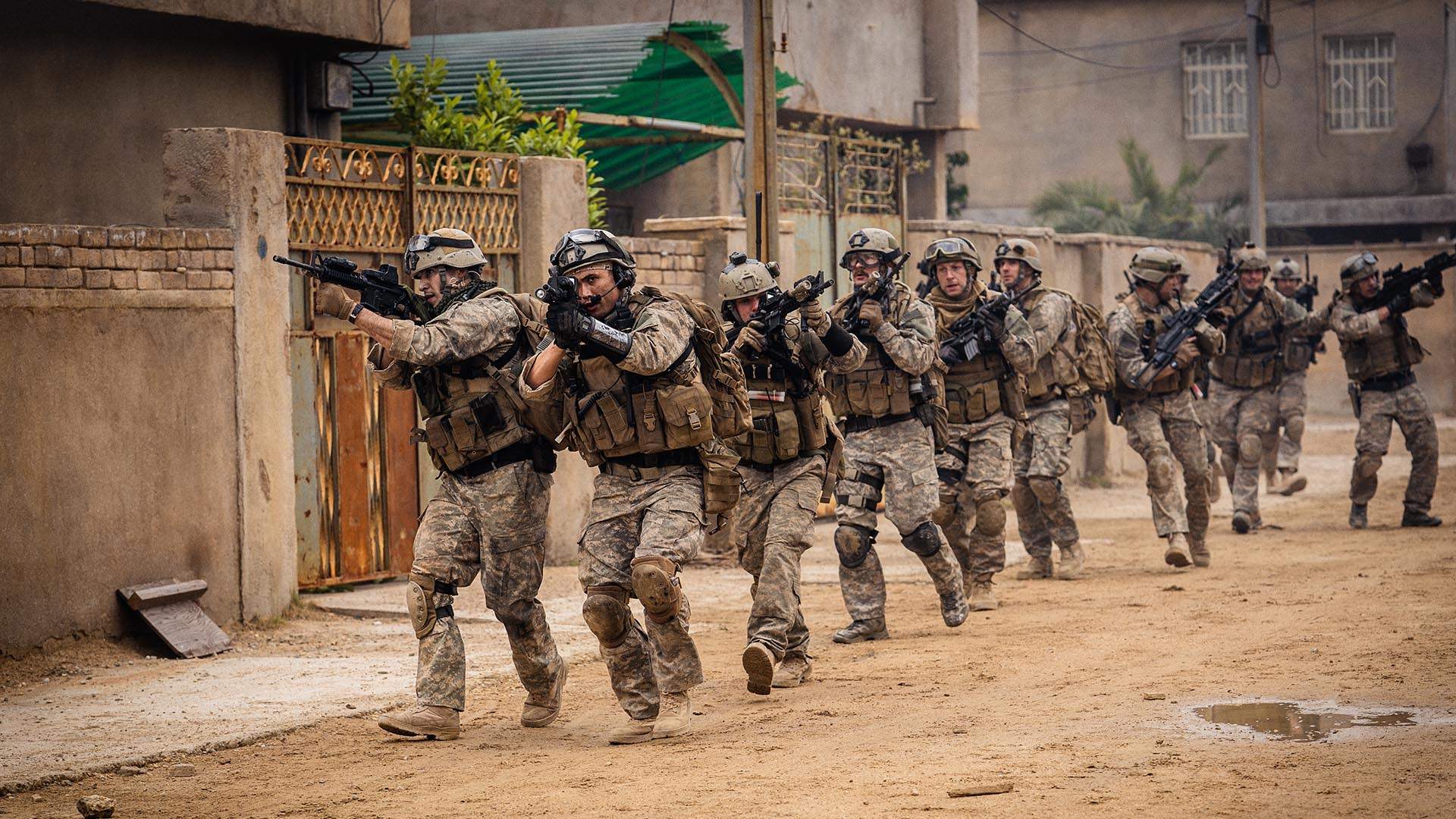
On the Importance of Warfare's Pre-Shoot Boot Camp in Cementing a Bond Among the Cast and Helping Them Respond Authentically to Such a Testing Experience On-Screen
Will: "Absolutely pivotal and central to everything that we did. And the boot camp was really the environment that fostered those bonds and allowed us to develop very sincere, authentic and real relationships and understandings between each other.
I think the boot camp really served two purposes as far as us being able to execute the objective of this project. First was the emotional side of things, and those bonds that I mentioned. And then, second I think was the development of a skill set to be able to put our best foot forward as far as accurately representing Navy SEALs.
And as actors, we were under no illusions about the massive gulf between us and the real individuals who serve, and the women and men who operate at that level. But Ray is a fantastic instructor — both a great teacher and a great director — and so he really couldn't have put us in a in better stead to replicate seal culture to the best of our abilities."
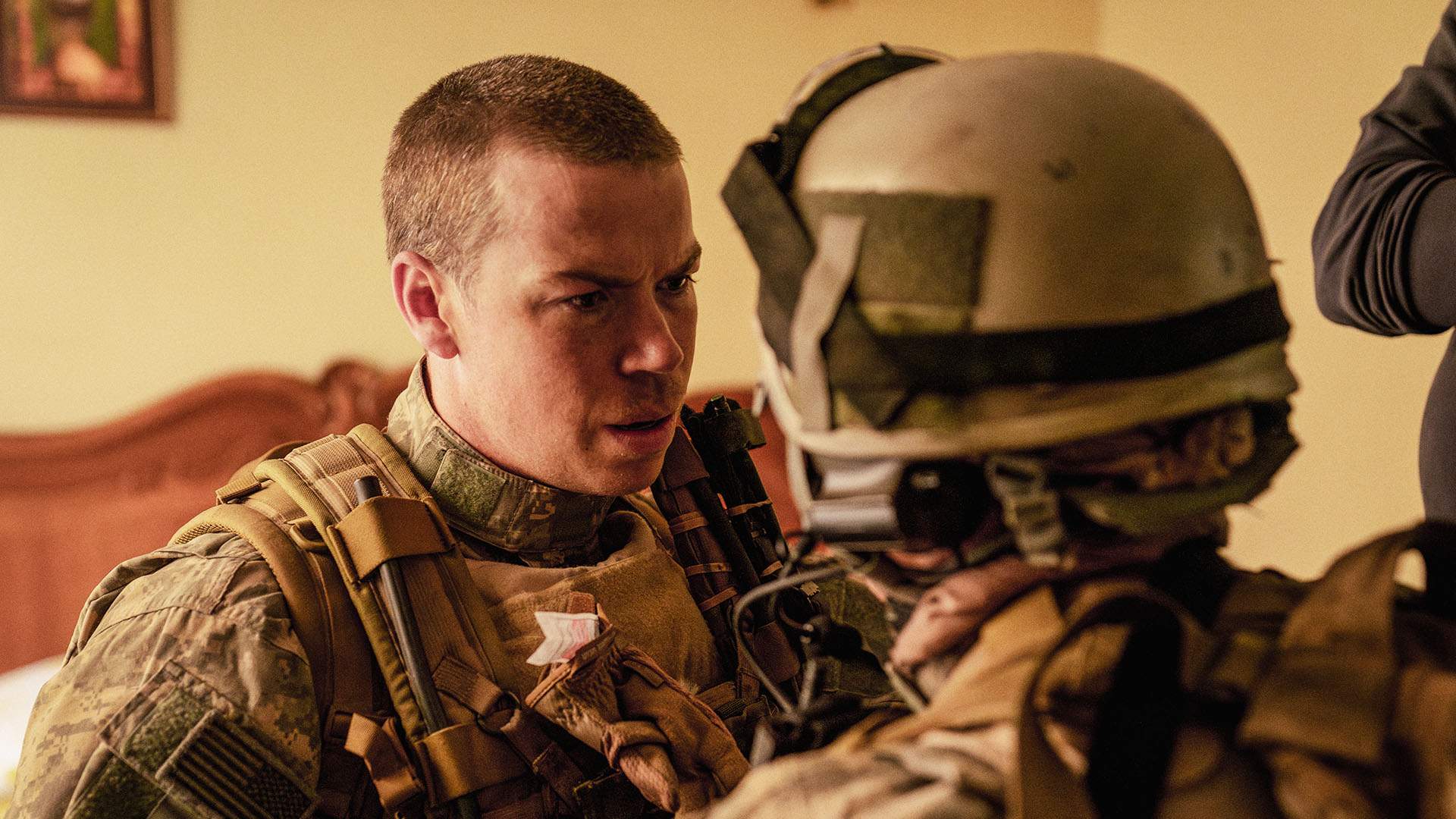
D'Pharaoh: "And plus, if we didn't prioritise working on this bond from the jump, you would honestly see a different result on-screen, I'm sure."
Ray: "It was extremely important, actually. It was one of my three critical nodes of what I wanted to do, not only just for the practicality of what you mentioned, and as it contributed to the brotherhood and what we would eventually see on film or on the screen, but I just wanted them to experience something that they could take away for the rest of their lives as well. Just the concept of the team before self, what it means to sacrifice, the burden of leadership, identifying everyone's weaknesses and strengths, and how they can help each other, essentially. There's a concept that we're only as fast or as strong as our slowest or weakest person.
And then, applying those principles, all that stuff is what they were using to draw on in regards to their performances, as you mentioned. So it was a super important. It was one of the things I focused on the most."
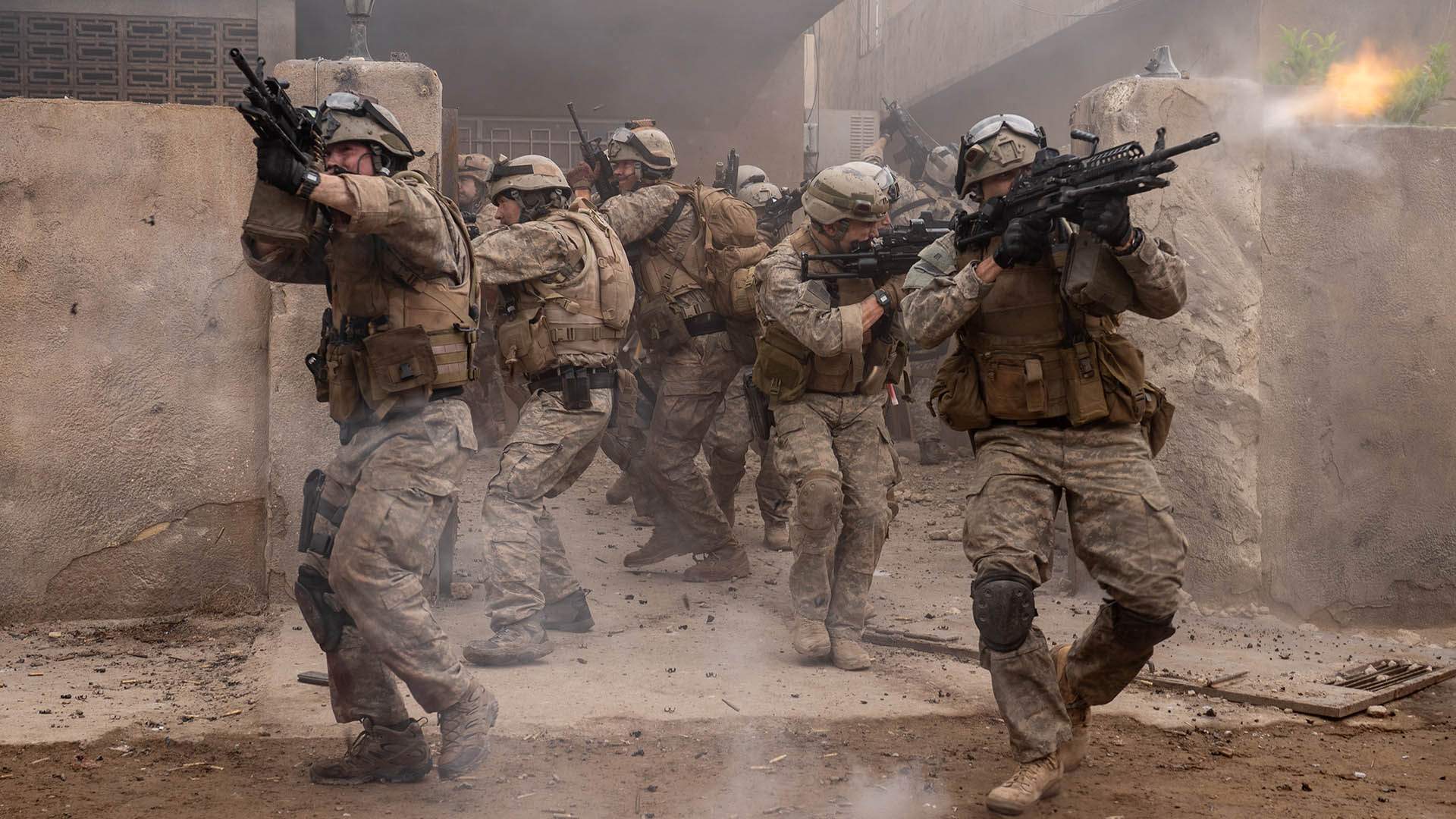
Will: "I think the guys, obviously from the point of signing on, began to just engage in even more physical conditioning and whatnot to make sure that we're all showing up to boot camp in the best shape possible. But, really, I think what we all experienced — at the risk of speaking for anyone, but I feel like I can safely generalise in this by saying that I think physically and mentally, especially, it pushed us all further than we were even necessarily prepared for. And that was absolutely necessary.
A fundamental part of the story is a response to things going wrong and loss, and the reaction to that. And it's typical of Navy SEAL training to analyse how people respond to duress, and how they respond to things going wrong, and what their reaction is to things being especially difficult, and that was integrated into the training.
So regardless of what individual preparation we've done, the boot camp really became defined by how we'd respond to things that Ray knew would lead us to fail."

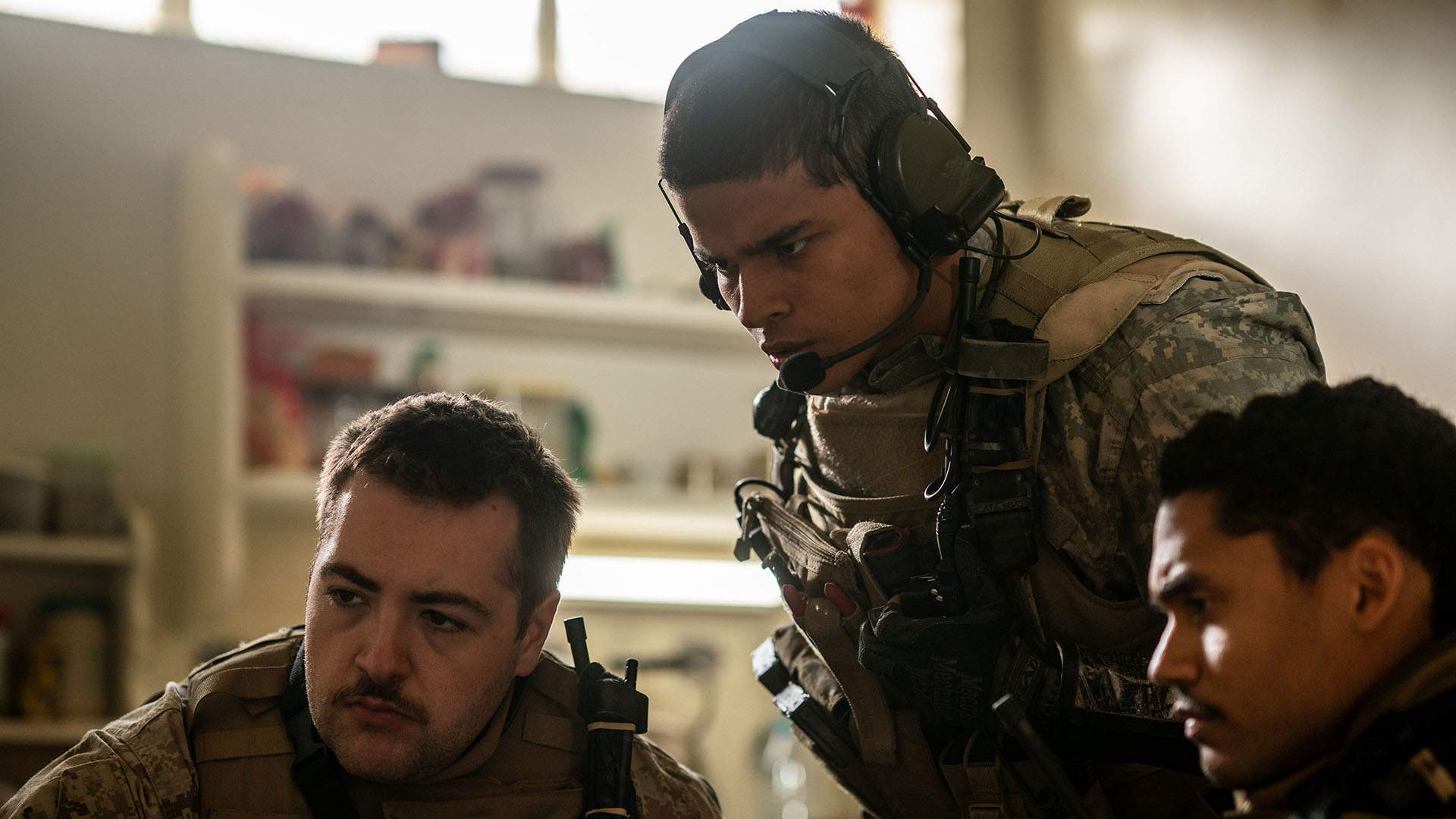
On Woon-a-Tai's Task Portraying Mendoza — While Mendoza Was Co-Directing the Film
D'Pharaoh: "Of course I have a sense of responsibility that I represent this man on-screen for countless of people to watch it. And but in all honesty, though, he had way more pressure on his shoulders than I could ever have. So I don't really want to sit here and tell you how much pressure I had because, yeah I did, but it was also very much a gift.
The fact that I was the only one to have to have my guy be there every single day, I can't complain. And as much pressure as it was, I wouldn't have did it any other way or wanted to do it any other way.
But really, Ray had way more pressure on his shoulders than I could have ever had. He's telling the story on behalf of his personal story and the people, their personal stories who were there, but also countless other veterans who served in multiple different wars who can relate to that exact same story. And sadly, maybe in Hollywood, the depiction of a lot of stereotypes in the military community that he was breaking down with this film."

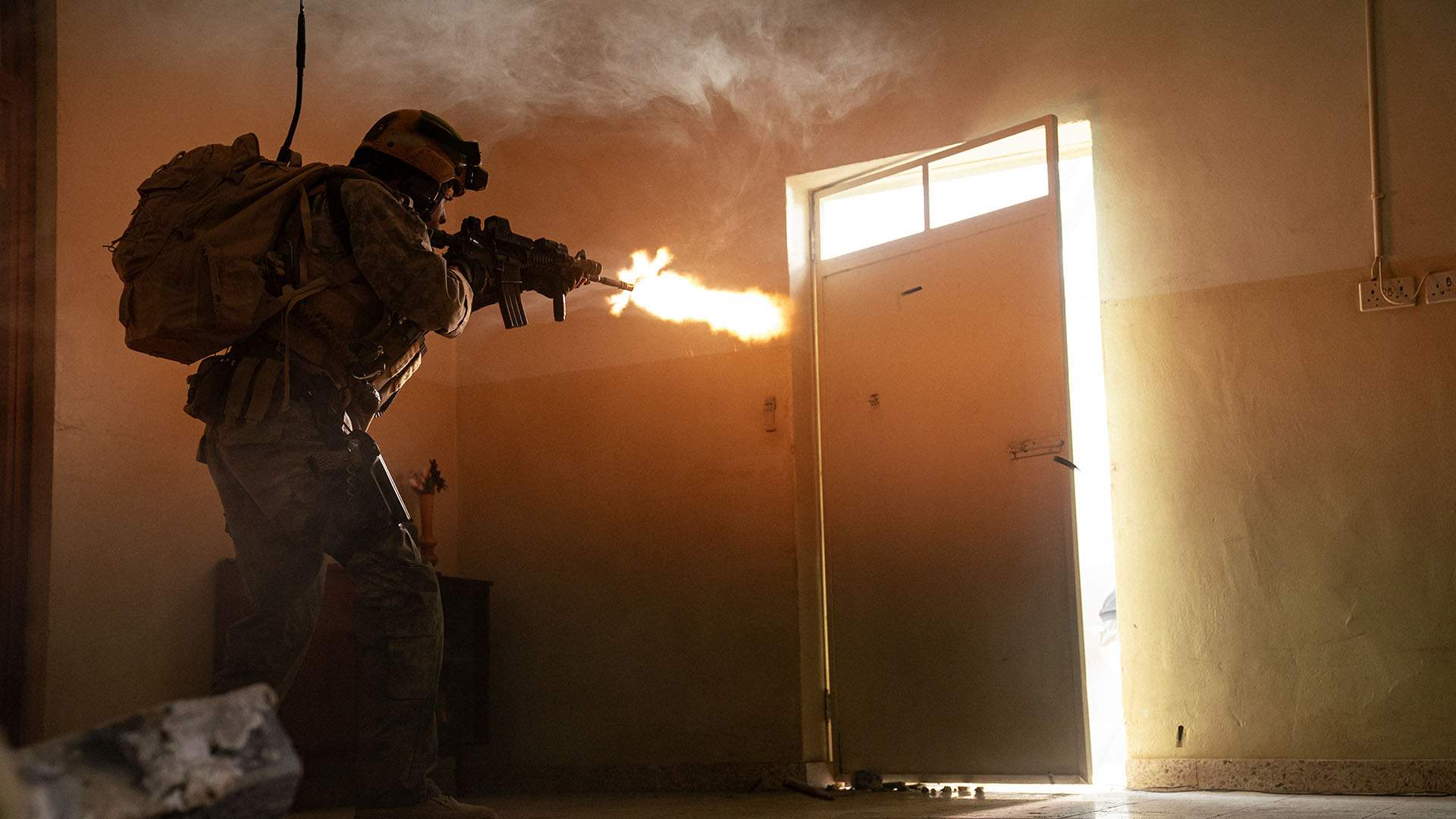
On How Garland and Mendoza Came to Reunite for Warfare After Civil War
Alex: "We got to know each other during the shooting of Civil War. Ray was a military advisor, and the idea to work together in a really concrete way arrived in post-production with Civil War.
Ray and I had stayed in touch. Ray had some project he was working on and we discussed it — and I was very interested in some of the sequences that Ray had choreographed, and some of the qualities of realism that Ray introduces because of his experience prior to working in the film industry.
And so I approached him saying 'would you be interested in working together to make a real-time movie that attempted to be forensically accurate about combat and removed some of the tricks and devices of cinema?'."

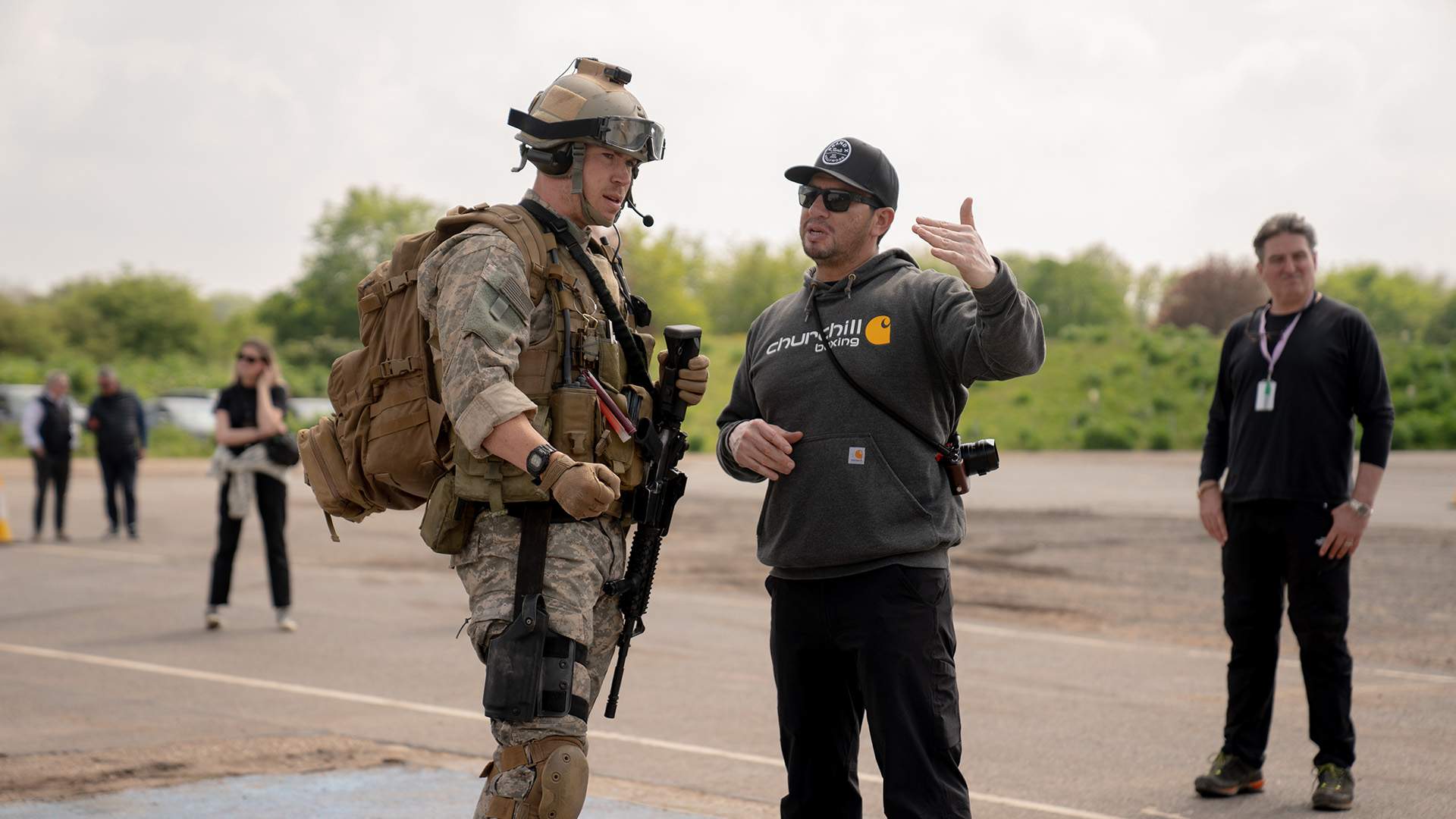
On the Cast's Experience Working with Co-Directors with Completely Different Backgrounds and Skill Sets
Will: "It's very, very cool to see two very authoritative leaders practise the humility and self-awareness that is required to co-lead a project like this, while never stepping on each other's toes — and both, I suppose, leading in their own ways and based on their own areas of expertise.
Alex will be the first to say that Ray naturally ought to lead on anything that related to the experience of being at war, and anything that we were doing, I would say, sort of from an emotional standpoint — and anything that pertained to operating like a SEAL.
And then I think Ray would also readily admit that Alex took slightly more of a lead when it came to the camerawork and things that related to technical direction. And they were a brilliant complement to one another."

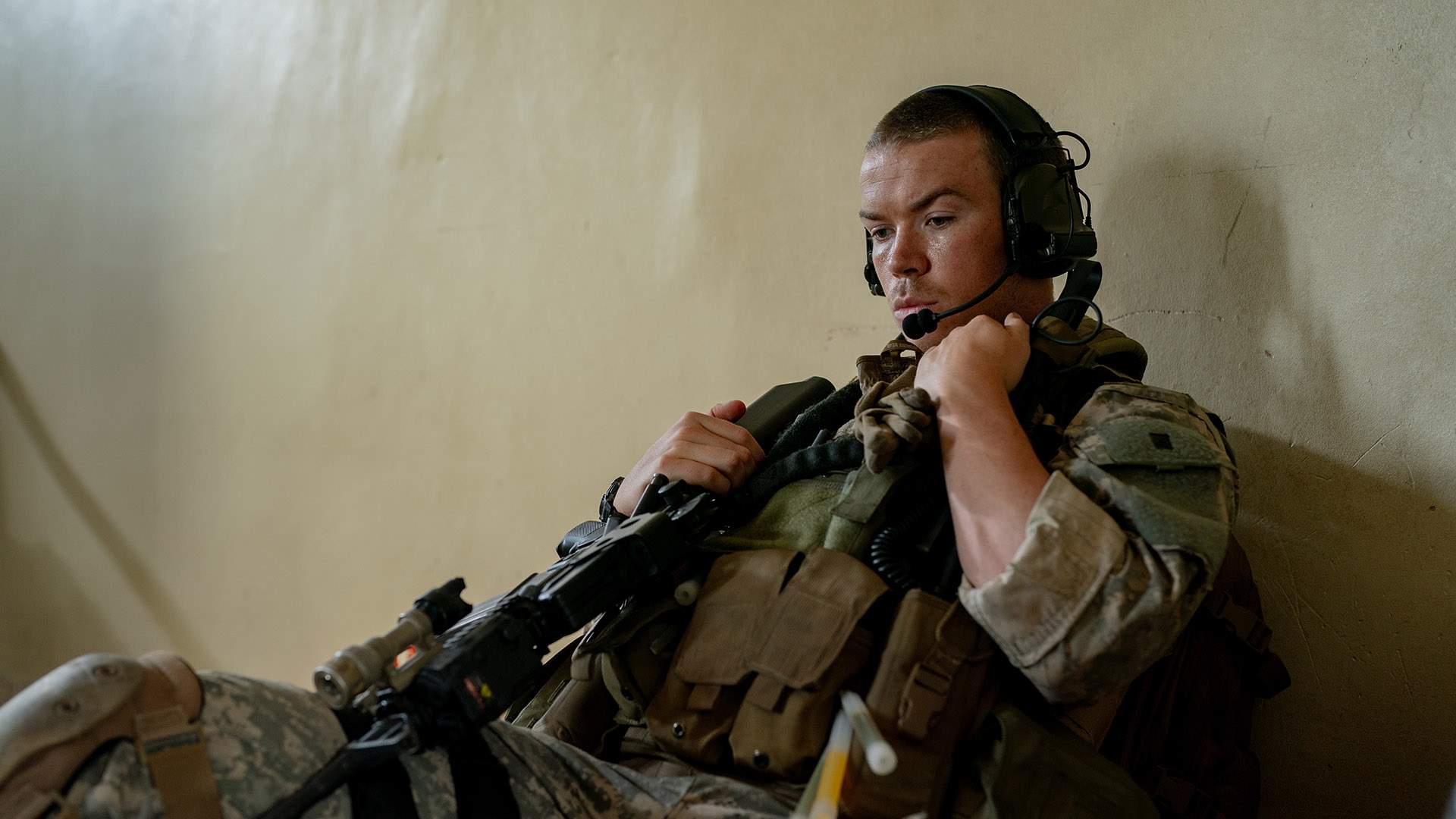
On Using Long Takes, and the Pros and Cons of How One-Shot Scenes Can Immerse Audiences and Create an Unrelenting Sense of Tension
Alex: "Right or wrong, that would be, in a way, for other people to decide. But what I would say is that me personally — this is just me — I find that, for example, scenes that are all shot in a oner, where there's no cuts, I find I start to think about the filmmaking more than what is happening on-screen. So I get detached from the characters. I get detached from the narrative. And I start thinking 'where are the secret cut points?' or 'how did they orchestrate this movement through the door or over the car?' or whatever it happens to be.
So I find it distancing. And what I think is, while we're talking to each other now, at the moment I'm looking at the screen, so in a way that's a close-up — but sometimes I might look over here and then it's a wide. And actually the grammar of cinema, with edits between mids and close-ups and wides, is very like our experience walking down the street or talking to someone in a room. You're sat opposite someone in a restaurant, but then you see the waiter approach, it's turned from a close-up to a wide. You blink. There are these little sort of interruptions, which are very like edits.
So for me, the most truthful version is actually the classical film version of moving between close-ups, mids and wides — whereas a oner, I find slightly artificial, and not how I experience the world, paradoxically."

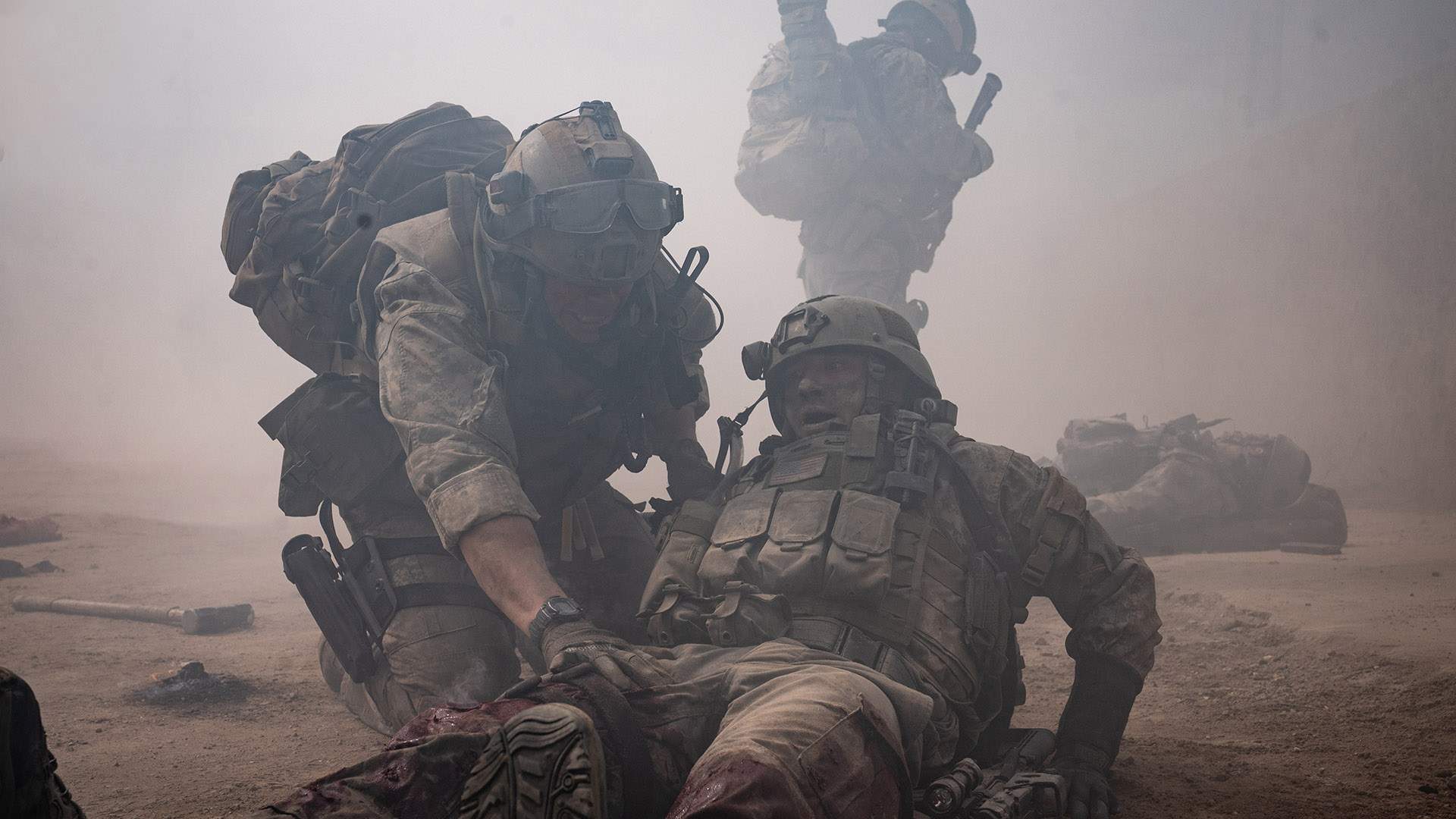
On the Difference in How Warfare Approaches the Depiction of War Compared to Other Films, How It Continues Activist Work and Why It Should Start Conversations
Will: "I think one of the things that attracted me to this project was that it seeks to break with the conventions around how war is often depicted in Hollywood. I think the tendency within Hollywood when it comes to war is to mine warfare environments for entertainment. And a lot of the time in the depiction of war, American soldiers and British soldiers especially, their place in warfare environments and their actions are glorified and romanticised. And I was excited to be part of a project that sought to go against the grain in that respect, and really focus more on depicting the real-life events with a degree of objectivity that that rarely, rarely is seen in Hollywood.
So that was a process that was too exciting to turn down. I think as a civilian, a lot of our understanding of war is based in these Hollywood recreations, and they don't necessarily optimise for truth and accuracy. So we stand to learn something potentially a bit new and a bit more truthful by watching a film like Warfare.
And then also my hope is that veterans feel more accurately represented, and therefore at less risk of being misunderstood by the general public in respect of what they do and why they do it."
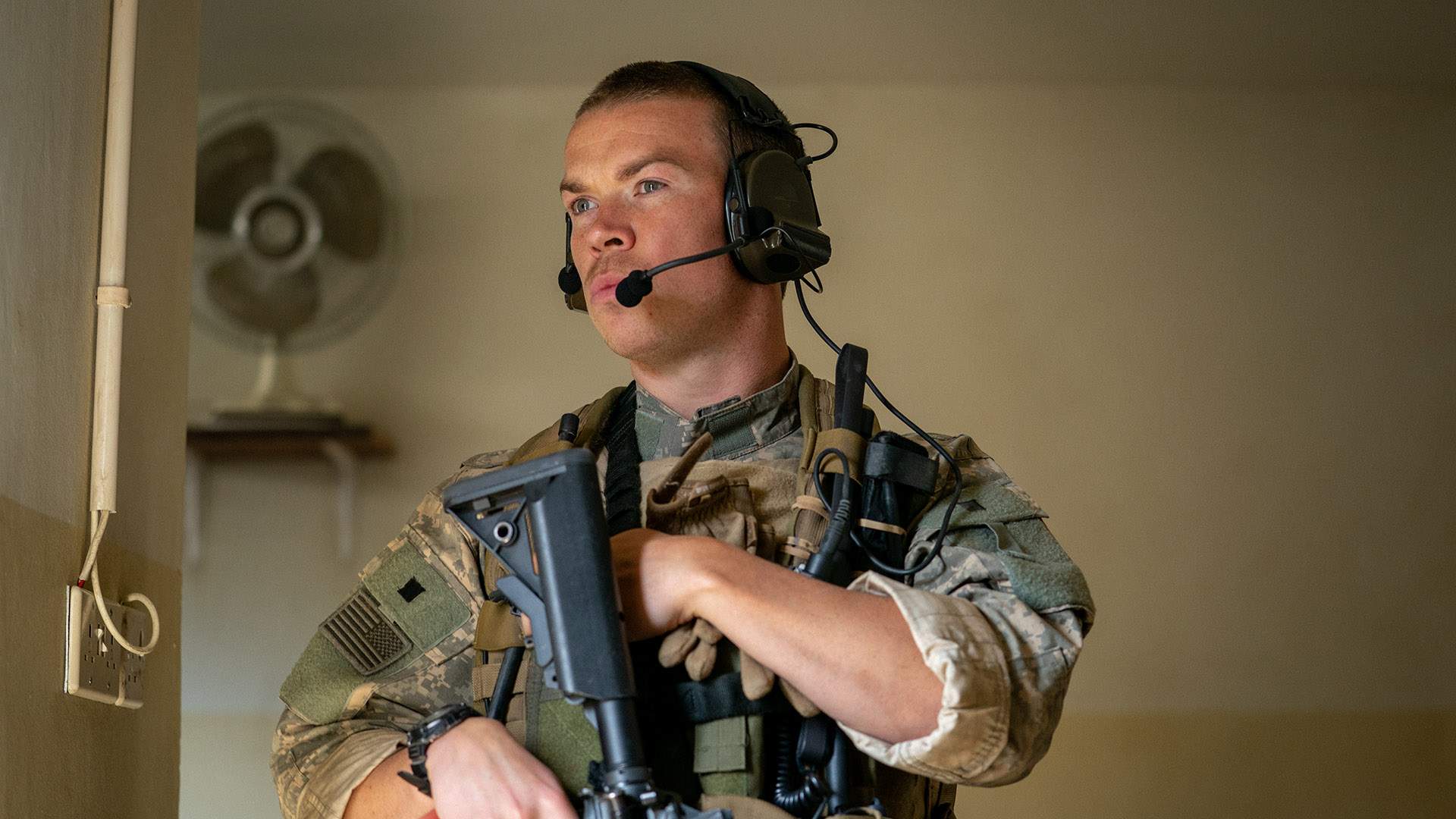
D'Pharaoh: "So with this film, what I loved about it so much when I was reading the script and while we were shooting it is that we didn't romanticise anything. We didn't make anything up or make anything look cool.
And one thing that I hope people will see with this is a sparked conversation on what happened in Iraq. I think that this is a film that doesn't have a bias. I feel like this film is more like a transcript. It just states what happened and that's it.
And as audience members, we should leave the theatre talking about what happened over there — yeah, talking about what happened over there.
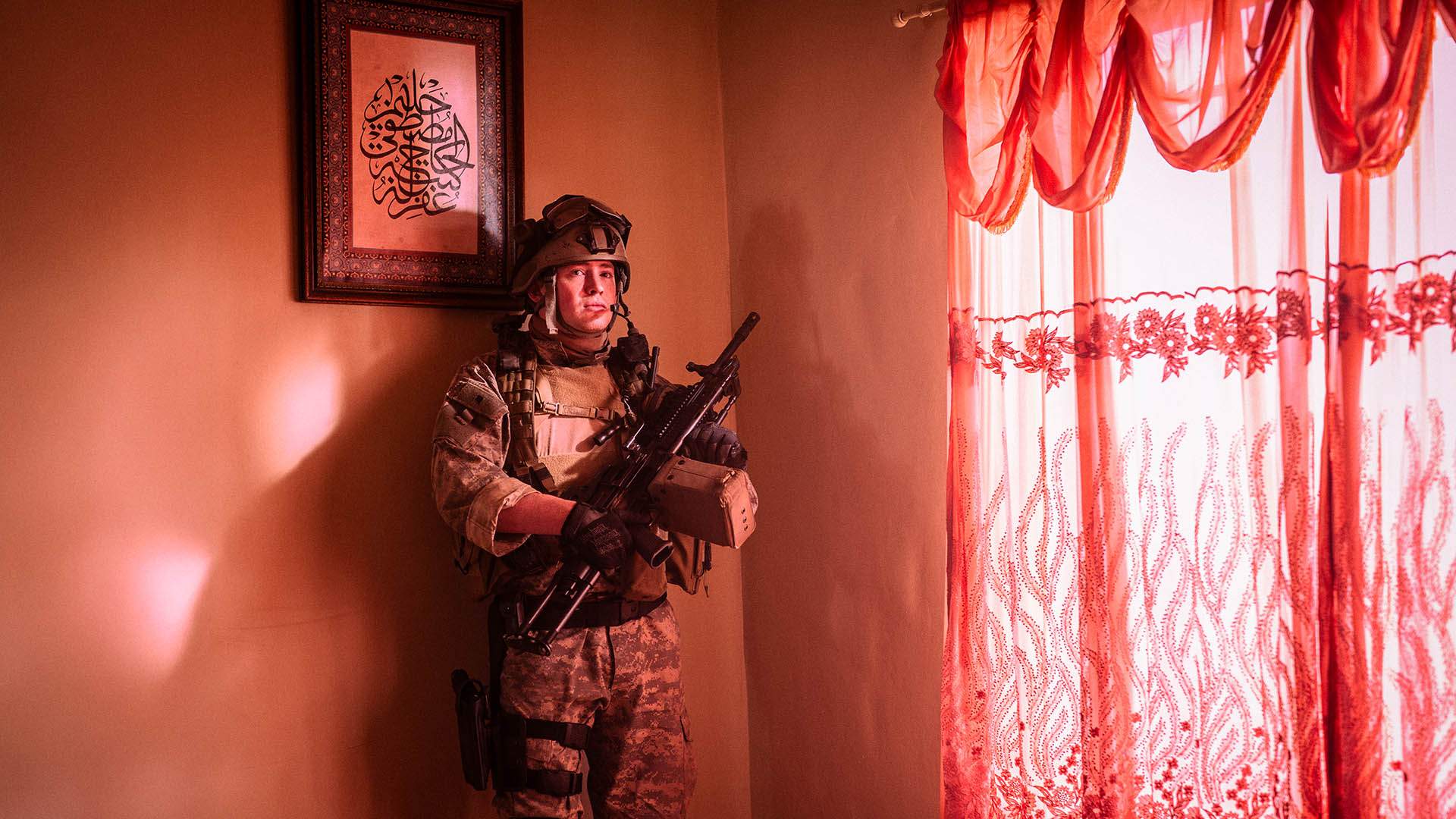
So to answer your question about activism or et cetera, this a good part of that. I don't think I'm steering away from my activism at all. I think this is sparking conversation of what happened in Iraq. It's an important conversation to have.
And to have a film that doesn't have a bias or doesn't make a stance, if you may, is a perfect example to have those conversations. Because we didn't glorify anything. We didn't make anything look cool. In my opinion and in my personal opinion only, it makes it seem like this film may not want people to join the military. I don't when I watched that movie."

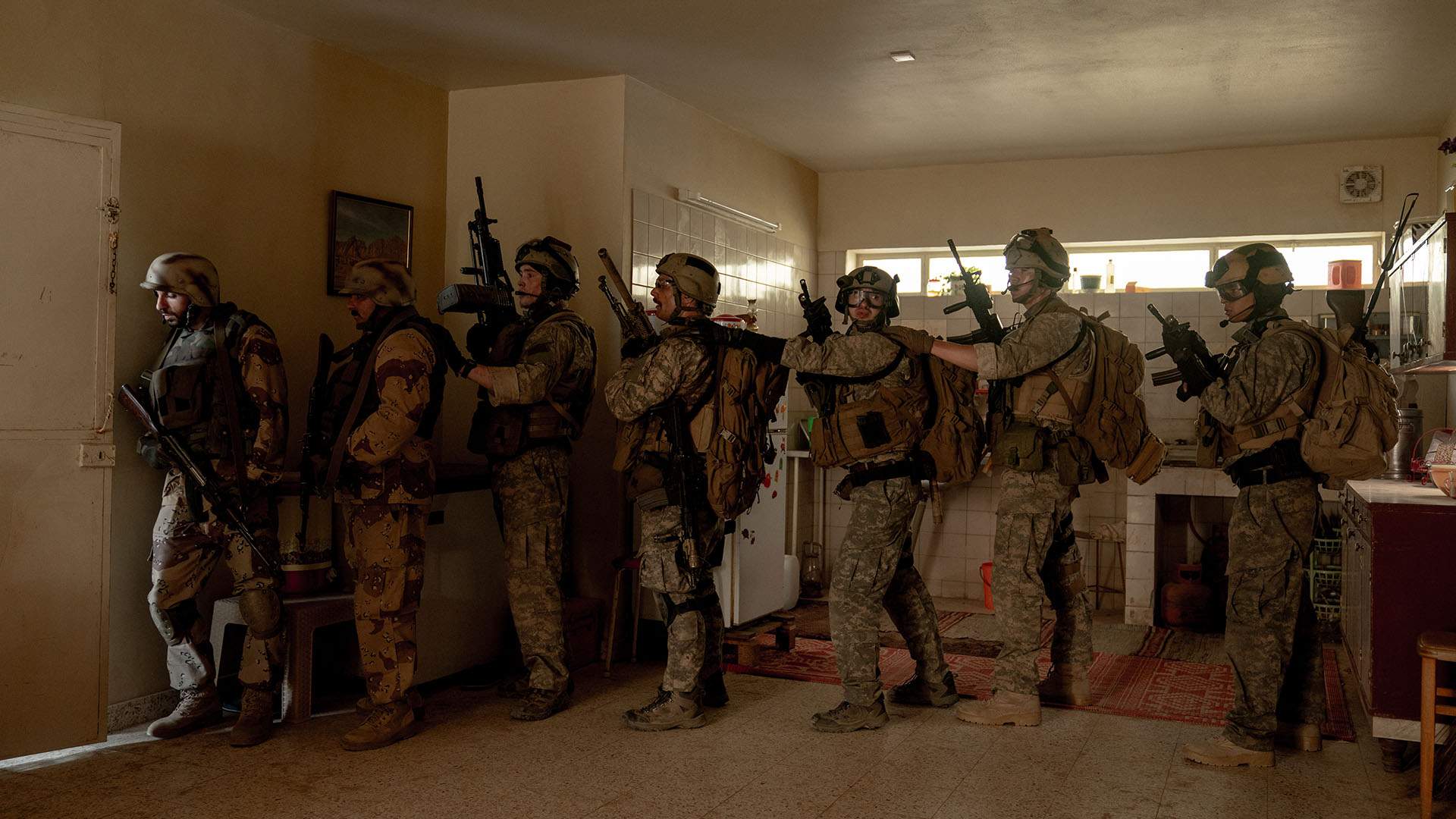
On How Mendoza Looks Back at the Iraq War with Everything That the World Knows About It Now, Including the Claims Used to Justify It
Ray: "I think when I first heard, yeah, I mean I felt a little heartbroken about it for sure. Like, I did ask myself 'what was it all for?'.
There's a lot of good we did there — besides the mission set of, like 'all right, we're a direct-action force, we get tasks given that we do missions'. But there's a lot of humanitarian effort when you coexist with the people of that country. There's a lot of good humanity. You see the full spectrum, of the worst side of humanity to the best side of humanity, on both sides.
And we took a lot of autonomy to do, outside of the scope of our mission, to do as much good as we could. Because when you're there and you see people that are in need — there were people that were being oppressed, whether you agree with me or not; I was there and we saw it — and we helped a lot people. Didn't have to. It wasn't something that was passed down as a policy.
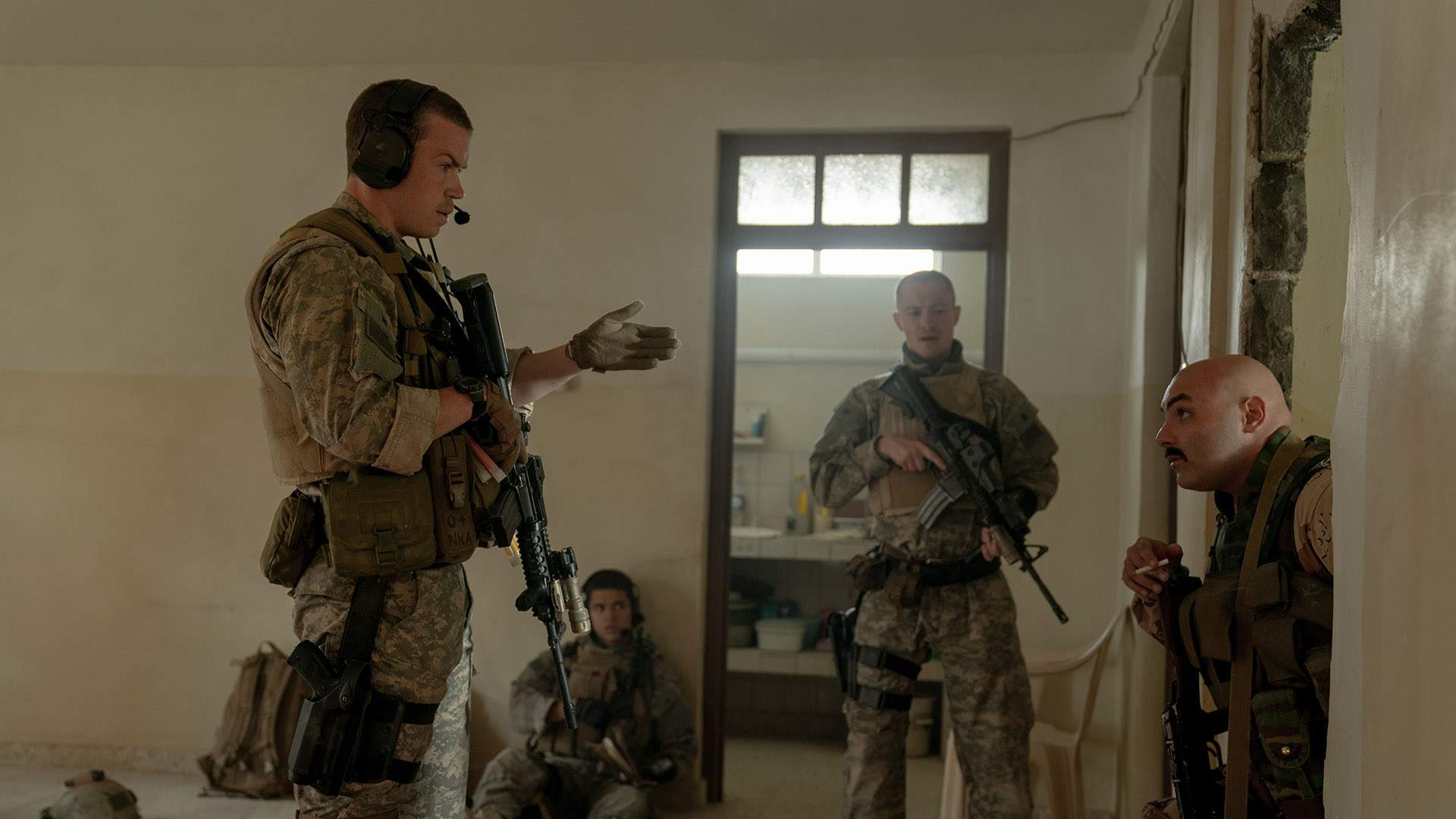
We're occupying their country. We would go into these people's homes — and not there for them, but just using it as depicted in the movie, as a position to use, to observe or to operate out of, and you learn a lot about them.
I'm not there to hurt them. It's just we're using the home for what we need it for. And so yeah, you just learn and you want to help where you can. And there's a lot of assets we have — or whether it's just providing water or colouring books, or aid stations for battered women or battered children or foster children.
So there's a lot of good we did, and that's the only salvageable thing coming out of that. Even though ISIS came back in and took it over, there's a lot of good done there. I guess that's the only way I can really live with it."

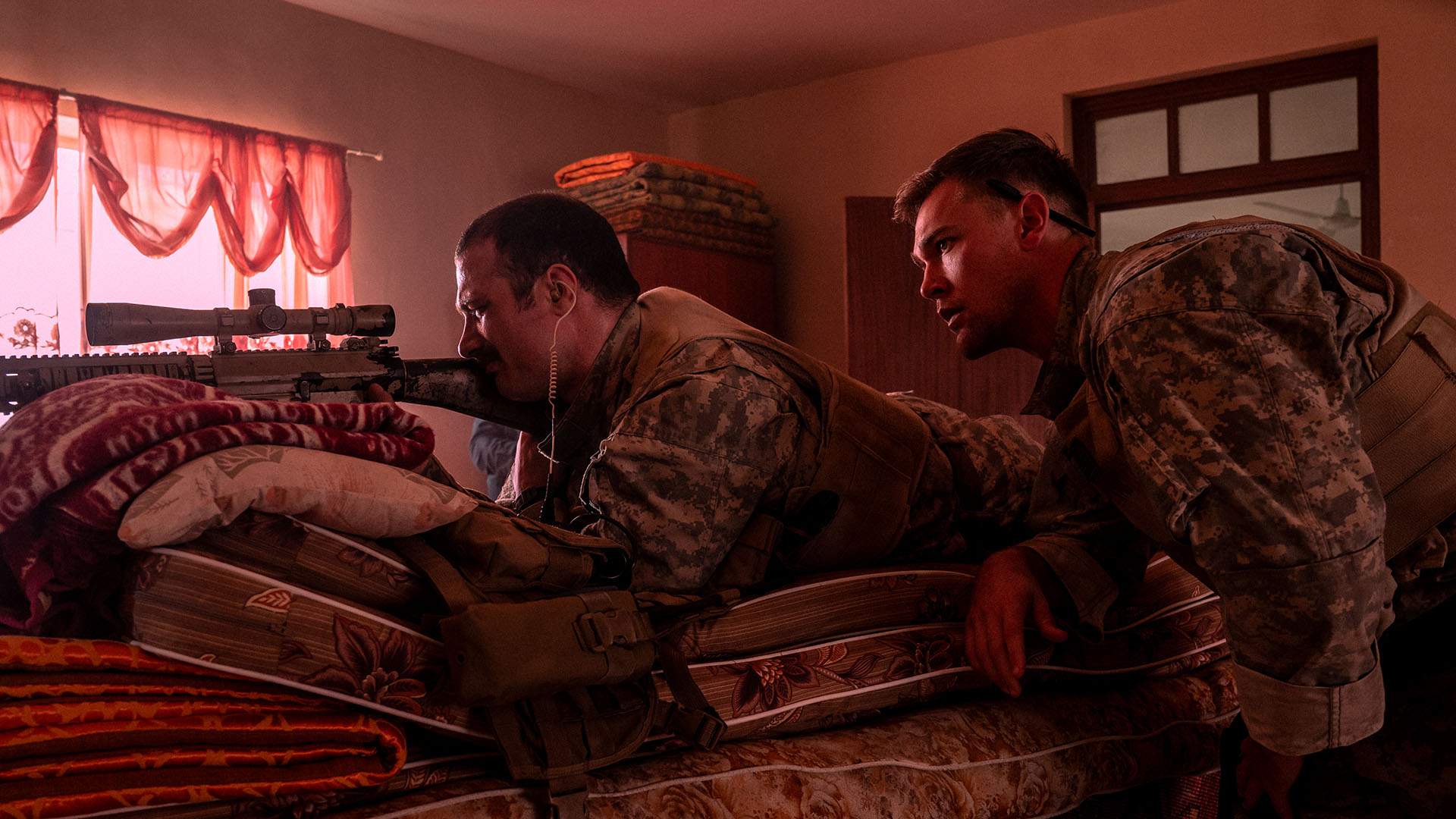
On What Garland Has Learned About Human Nature Through Interrogating It On-Screen and on the Page Across His Career
Alex: "I would say that part one of the answer is in what Ray just said, which is that Ray is speaking from the point of view of someone who's seen a lot of combat, and spent a lot of time at war and involved in the military. But what you can hear is — I can hear, I'm sure you can hear — is a concern for compassion and a desire to have done something good, even amidst a dreadful, horrific situation.
Ray said 'this is what I can salvage from this in order to live with it, is that some good was done'. And I think that one crucial part of the human condition is that most people have a desire for goodness. And I think the other part that I've observed is that we seem to all suffer from a kind of Alzheimer's-like dementia, where we are unable to remember things for very long.
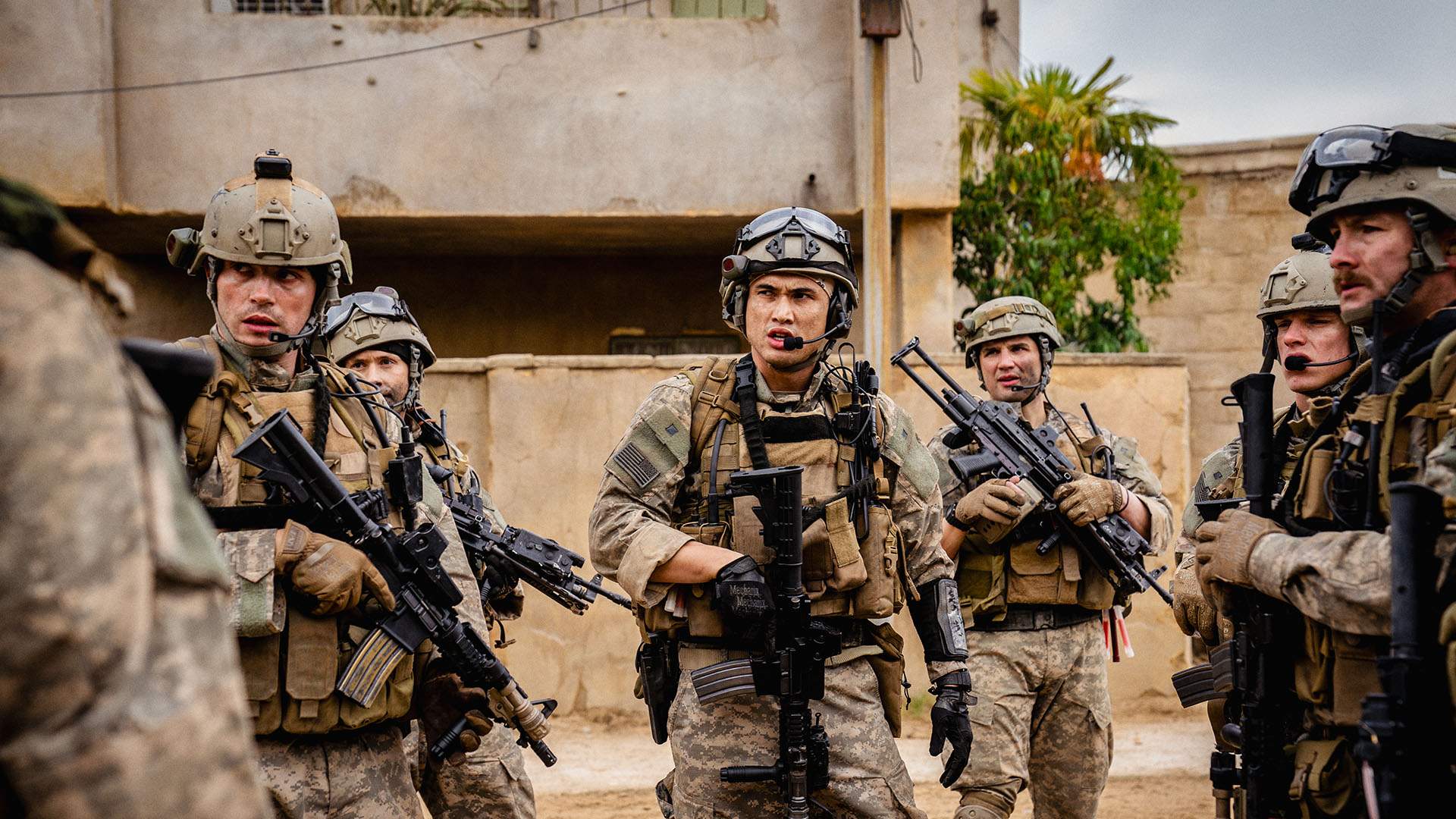
So important lessons can be learned. I was born in 1970. I thought there were some lessons that were learned from the Second World War that would never be forgotten, and now I'm 55 and many of them have clearly been forgotten. There were lessons learned from Vietnam that should never have been forgotten, and then they were forgotten. And there will be lessons learned from Iraq, should be remembered, have been forgotten. And so it goes on.
So a good example for me right now is that you have the leader of the most-powerful democracy in the world rather casually talking about militarily owning their sovereign peaceful neighbour, as Greenland. To me, a world leader, particularly an American world leader, in the immediate memory space of some of these things, would simply never talk like that. You could only talk like that if you've forgotten many important lessons.
So goodness and dementia would be my takeaway."

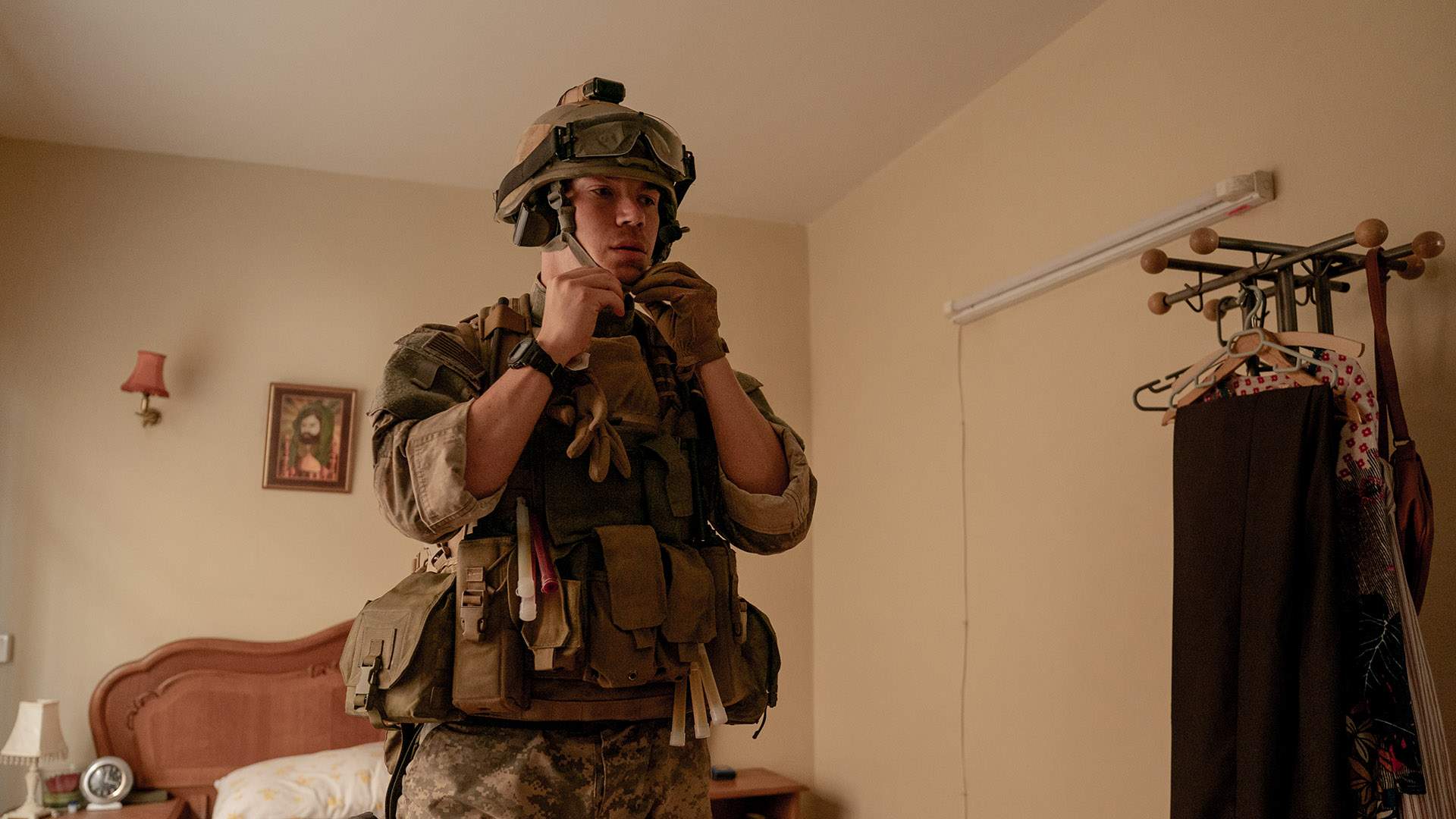
On Whether Poulter Enjoys Taking on Parts in Physically Demanding Productions, with Warfare Joining The Revenant on His Resume
Will: "I think I do. I've been very fortunate to have those opportunities first and foremost, so I'm grateful for them. That's, I suppose, the overbearing feeling around it. But where possible, I do like to expose myself to those sort of challenges — and comparable in the sense that I guess it definitely was a test from a mental and physical standpoint. And I think that, to a degree, I couldn't necessarily have done this had I not gone through certain challenges prior.
But this is totally unique in respect of what a team-orientated and collectivist process it was, and that's what I'm most grateful for. I think that we all practise this idea that we were all a team before we were individuals, and the bonds that we formed are truly unlike anything else I've experienced.
So that's what I'm most grateful with in respects of Warfare, and it's the feeling that I'm left with — and I imagine will be left with long after this film was released."

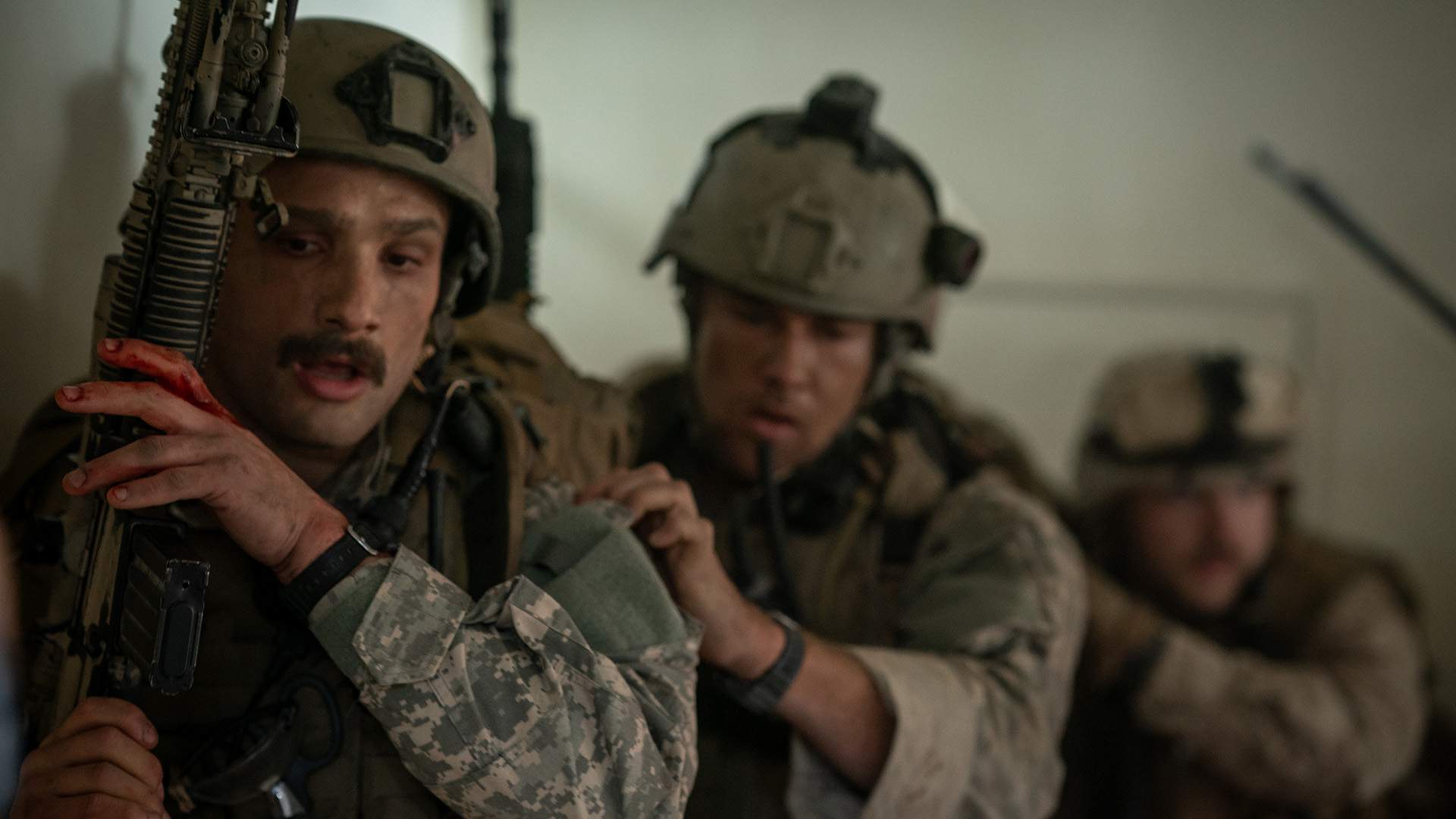
On If Anything Else on Woon-A-Tai and Poulter's Resumes Helped Them Prepare for Warfare
D'Pharoah: "No. This is such a completely different role for me, and the fact that I had Ray Mendoza there for me by my side throughout the whole process, it would have felt very disrespectful to do anything opposite of what he wanted."
Will: "There was only one other role that comes to mind for me. I was involved in a sort of satirical film that was kind of a critique, I suppose, of war, and it was called War Machine. And I played a US Marine and took part in a boot camp. And that was certainly helpful as far as being able to predict, to some degree, how close we would all get over the process and what would be required of me in a leadership position.
But also to echo D'Pharaoh's point, this film broke with convention in so many ways and was so unique that really, it sort of exists in a category of its own, both as an experience and as a film."

On Whether Garland Feels Like Civil War Was a Premonition — and If It That Was the Sense While Making It
Alex: "At the point of writing it, it felt to me like many people were having the concerns that were reflected in the script. At the point of making it, then January the 6th that happened, where American law-enforcement officers were attacked brutally, and the seat of government was attacked brutally by someone who was denying an electoral result. And now that person is floating, in a sort of mischievous but also serious way, about a third electoral term, which means changing the constitution.
It's not exactly that it's changed — it's more that it hasn't changed. So all of these conditions existed back then and they still exist now. I think they probably have gotten more serious. I think they probably have gotten more dangerous.
The strange thing for me is that the fever hasn't broken. That something as basic as wanting to stick up for Capitol law-enforcement officers is somehow not possible in these conditions. It's a very, very strange situation."

Warfare opened in cinemas Down Under on Thursday, April 17, 2025.
Images: Murray Close/A24.





